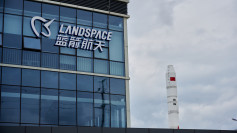Apple's latest flagship, the iPhone 16, has stumbled out of the gate, with early sales figures falling short of expectations. According to renowned Apple analyst Ming-Chi Kuo, the iPhone 16 series, particularly the Pro and Pro Max models, have underperformed during their initial launch weekend. Kuo's data, compiled from a comprehensive supply chain survey and pre-order statistics, reveal that demand for these high-end models has not lived up to the tech giant's optimistic projections.
Initial estimates suggest that pre-orders for the iPhone 16 series reached approximately 37 million units during the first weekend, a 12.7% decrease compared to the iPhone 15 series' launch last year. This downturn is particularly troubling for Apple, given that the sales of the standard iPhone 16 and iPhone 16 Plus models actually saw year-on-year growth. The disappointing performance of the Pro models, which are typically the crown jewels of Apple's annual release, has raised concerns within the company and among investors.
Kuo attributes this lukewarm reception to a few key factors, chief among them the delayed rollout of Apple Intelligence, the much-anticipated AI feature set to debut with the iPhone 16 Pro and Pro Max. Originally touted as a major selling point, Apple Intelligence was expected to be a game-changer, enhancing the user experience through advanced machine learning and personalized functions. However, this feature will not be available at launch, with Apple planning a phased rollout starting in October and extending into 2025. This delay has left potential buyers hesitant, dampening initial enthusiasm for the new models.
Another significant factor weighing on iPhone 16 sales is the intense competition Apple faces in key markets, particularly in China. The Chinese market, once a stronghold for Apple, is increasingly challenging due to the rise of domestic competitors like Huawei. Just hours after Apple unveiled the iPhone 16, Huawei launched the world's first tri-fold smartphone, a move that has captured consumer attention and further intensified the rivalry. Combined with a sluggish global economy, particularly in China, these market dynamics have contributed to the underwhelming sales figures.
Moreover, the iPhone 16 Pro models have encountered internal competition from their predecessors. The iPhone 15 Pro and Pro Max, launched just a year prior, remain formidable contenders, offering many of the same features at a lower price point. This overlap has likely cannibalized some of the iPhone 16's potential market, as consumers see little incentive to upgrade without the new AI features.
Pricing strategy has also played a role in the iPhone 16's rocky start. The Pro models, priced at $999 for the iPhone 16 Pro and $1,199 for the iPhone 16 Pro Max, are positioned as premium products. However, without the immediate availability of Apple Intelligence, many consumers perceive the price tag as unjustified. This perception is exacerbated by the significant discounts offered on the iPhone 15 during its lifecycle, leading some to question whether the iPhone 16 offers enough value to warrant its higher price.
Shipping data provides further insight into the iPhone 16's struggles. Current average shipping times for the Pro models are significantly shorter than those seen during the iPhone 15 launch, suggesting that supply is outpacing demand. For instance, the iPhone 16 Pro and Pro Max have shipping times of 14 and 19 days, respectively, compared to 24 and 32 days for the iPhone 15 series last year. While some analysts argue that this could indicate improved supply chain efficiency, the shorter shipping times are more likely a sign of weaker demand.





